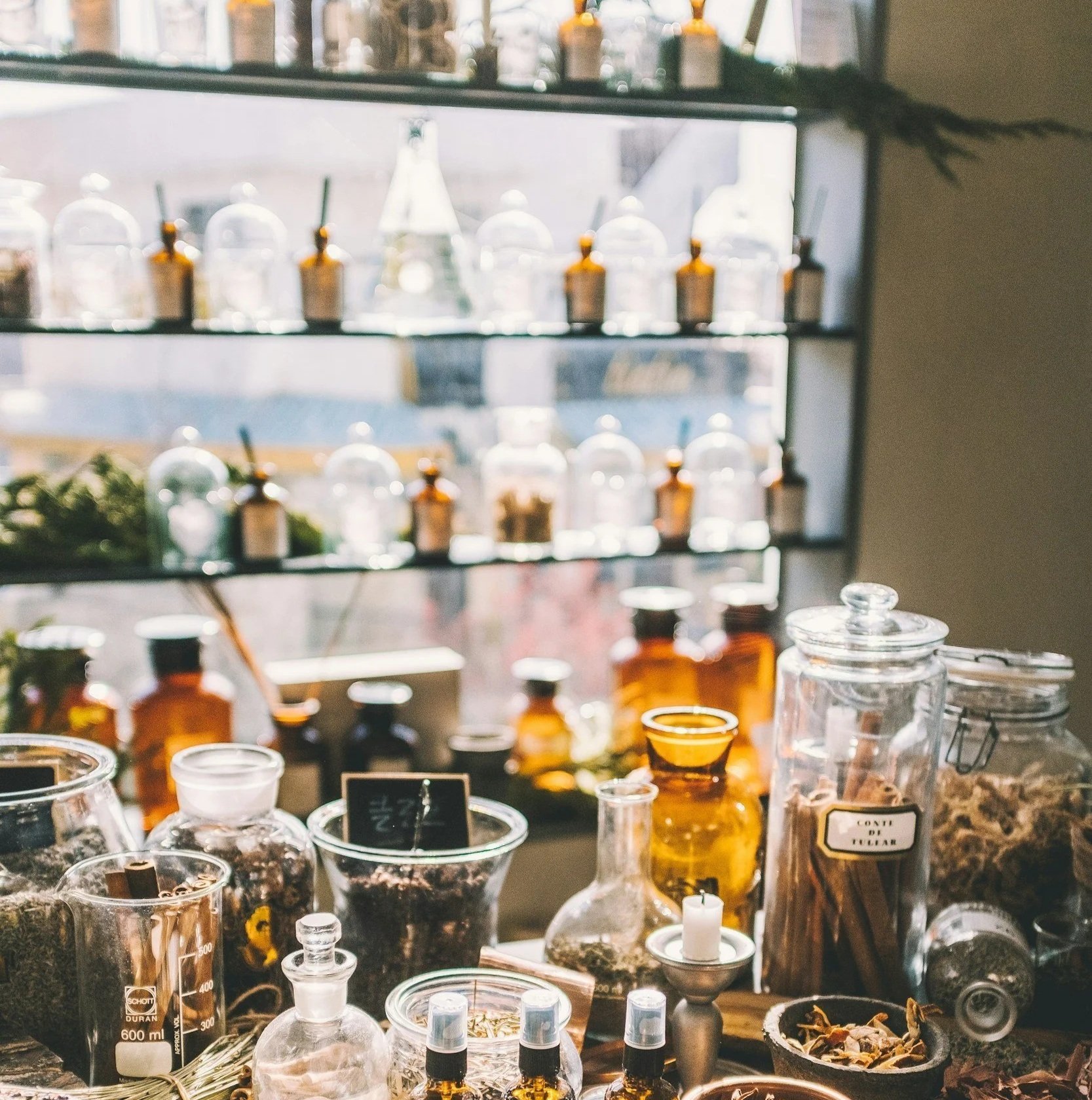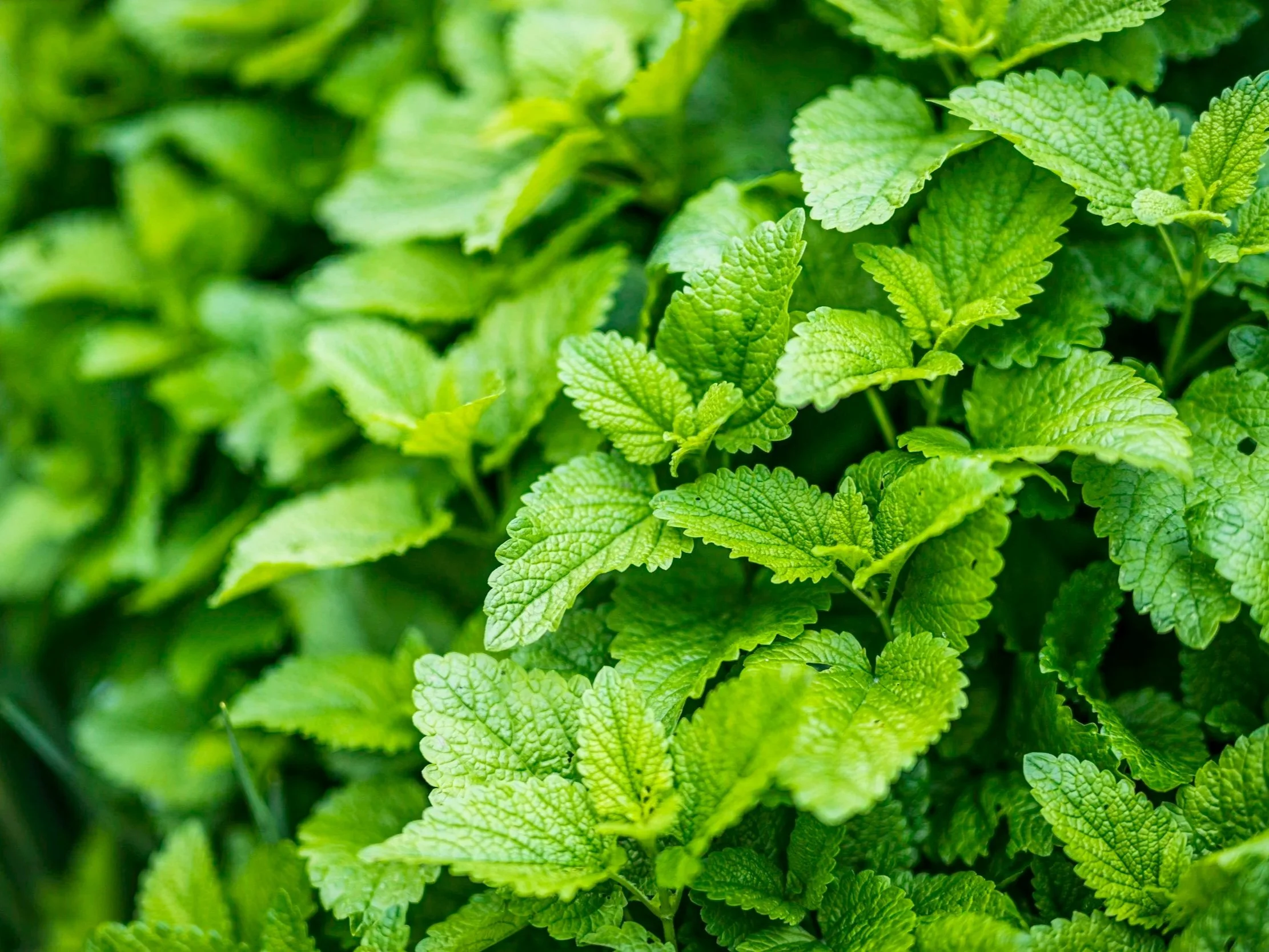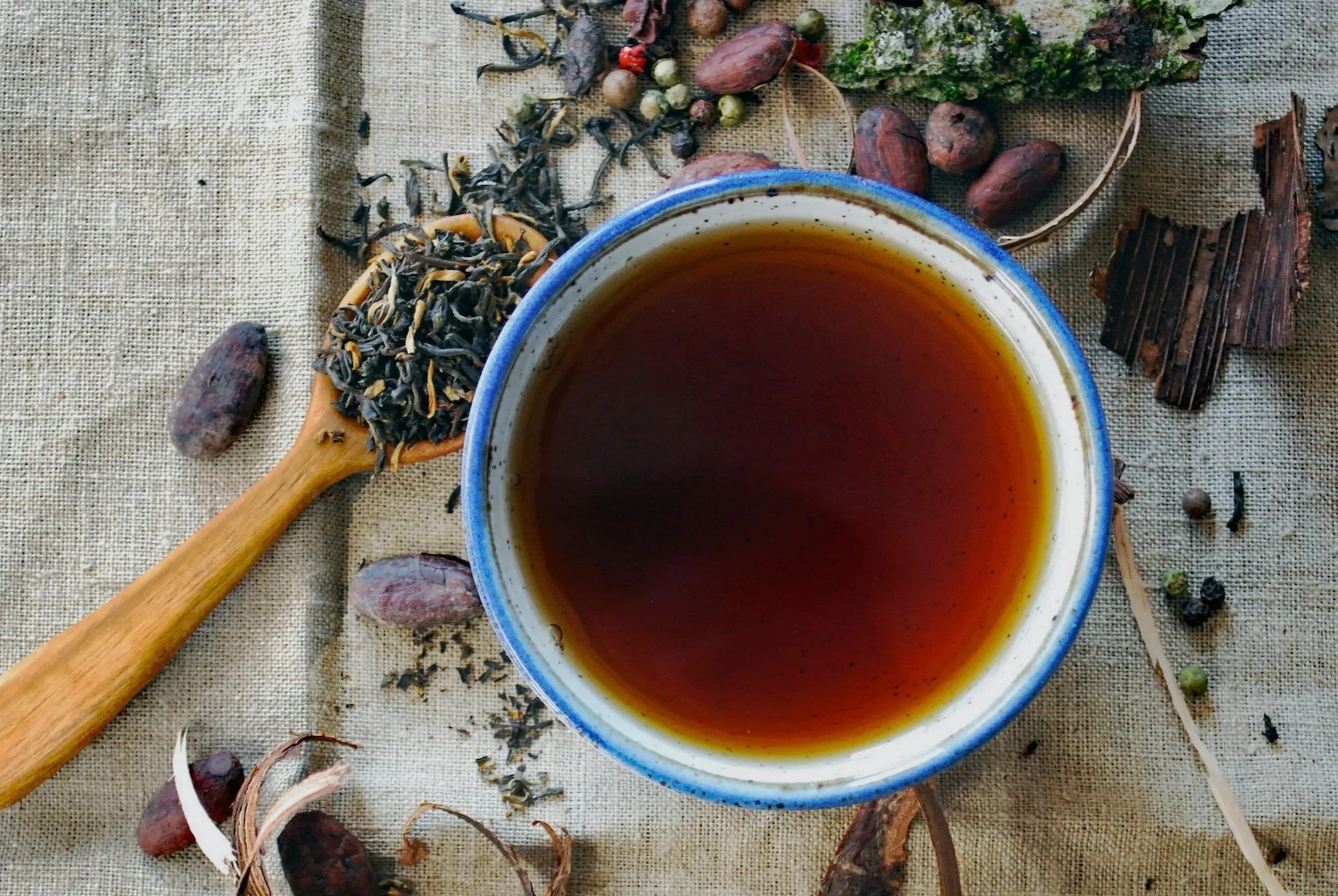Plant Medicines and Supplement Safety
You can't talk about Holistic Health without mentioning plant medicines. When I was in my early 20s, I got into natural healing modalities mostly because I didn’t have health insurance. I didn’t have a job that offered bennies until my early thirties, and using natural remedies was practical and cheap.
Plant medicines are anything made from plants, including pharmaceuticals, over-the-counter meds, herbs, and other botanical supplements. There is archeological evidence that plant medicines were used over 60,000 years ago. Herbal medicine use started to wane in the 19th century with the rise of pharmaceuticals but is now seeing a big resurgence.
Supplements can be botanically based or synthetic and are used to add to one’s diet, usually in a pill, powder, or liquid form.
PLANT & SOIL-BASED PHARMACEUTICALS
Plants are not only used in natural remedies. Did you know that up to 40% of pharmaceutical drugs currently prescribed in the U.S. are derived from plants, including many of the most popular prescriptions and over-the-counter meds today?
Such as...
morphine- poppy plant
Digoxin- cardiac medication, digitalis/ foxglove plant
Taxol (and many anti-cancer drugs)- common chemo drug/ Pacific Yew tree
Colchicine- gout, cancer/ autumn crocus
Quinine- malaria/ Cinchona tree
Aspirin- from acetylsalicylic acid in willow bark
Many pharmaceuticals were discovered by isolating microbes in our soil, and it’s estimated that more than 70% of our clinical antibiotics come from soil. Another reason for us to value the ground we walk on and grow our food in.
Such as...
Vancomycin- an antibiotic used to treat blood/bone/joint infections, endocarditis
Penicillin- the world's first antibiotic derived from mold
Rifampicin- an antibiotic used to treat tuberculosis
Cyclosporine- immunosuppressant used for psoriasis, rheumatoid arthritis, organ transplants
Tetracycline- antibiotic used for dermatitis, conjunctivitis, wounds
the mighty lemon balm
HERBS AND SUPPLEMENTS
The supplement industry has a projected worth of nearly $200 billion worldwide in 2025. That can be seen as a positive thing that people are turning to natural treatments with more consideration of preventative health, taking our health into our own hands, and becoming self-advocates. There are some things to keep in mind when using them, however.
Don't assume that it's safe just because it's an herbal supplement.
~little to no regulation can lead to expensive pee
It's said that the supplement industry is unregulated, but this is not entirely true. The Dietary Supplement Health and Education Act (DSHEA) operates under the FDA and was established in 1994 to provide the current regulatory framework for dietary supplements. However, a pre-market review of supplements is NOT required before they are sold!! Essentially, anyone can start a supplement company, market, and then sell a product and only run into issues if someone reports a serious adverse event down the line. This is only if the company reports it (which does not always happen).
Sooo…since anyone can start a supplement company, there is often little regulation over ingredients and quality. Unless you are buying a high-quality product, you are likely paying for fillers and random ingredients that have little intended effect= expensive pee.
~sketchy ingredients
Many cheap supps have unlabeled ingredients such as other herbs, fillers, and pretty much anything if the company does not conduct rigorous testing on its product. 'Fillers' can mean baking soda, cellulose, gelatin, stearic acid, magnesium stearate, carrageenan, titanium dioxide, and more. Are these ingredients good for you? Not necessarily, and it's not what you are supposedly paying for.
~They can be expired
There are many cases of people reselling supplements online with a newly stamped date over a rubbed-off/expired one. More common w/ 3rd party sellers online. Buy directly from the brand's store.
~False claims
A good example of this is Methyl folate vs. Folic Acid. Pregnant women are encouraged to get enough folic acid (synthetic folate) in pregnancy to prevent birth defects, yet studies show Folic Acid does not metabolize well and methylfolate from natural sources is preferred.
~Ineffective doses
Many supplements contain far lower doses than what is needed to make a real difference.
~Contraindicated
This means it’s not recommended with other meds, supplements, or health conditions. Some prescriptions should not be taken together!! I believe this is grossly under-addressed in medicine as I used to assist with med reconciliations daily. You would be shocked at medications people were legally prescribed to take together. And honestly, herbs are no different. There are many drug interaction checkers you can view online, and many of them will allow you to search for supplements and foods as well. Bring up any concerns to your health provider.
FOOD FIRST
It is important to note you will benefit far more from getting nutrients from FOOD FIRST over supplements since the nutrients will be more bioavailable and include other vitamins and minerals which have a synergistic effect.
For example, you can get vitamin C from a supplement or an orange. Depending on the person at a perfectly targeted dose, A vitamin C pill may be absorbed at 70-90%. OR you can eat an orange and get Vitamin C, A, B vitamins, potassium, calcium, phosphorus, fiber, flavonoids & carotenoids (anti-inflammatory and antioxidant properties) and close to 100% IU’s for the day. Other foods very high in vitamin C are red & yellow peppers, guava, kiwi, strawberry, and papaya.
Of course, the issue with relying only on food is not everyone has access to good food (food deserts and cost) or is choosing the most nutrient-dense food (depleted soils, decline of nutrients in globalized food transport, etc.). This is a good reason to supplement with a quality multivitamin and some of the most common micronutrient deficiencies.
Supplements can add vital nutrients to our diets that one can't get from diet alone. They can introduce concentrated botanical healing agents to kickstart the healing processes and often provide additional compounds and properties that pharmaceuticals can't with far fewer side effects. Adaptogens like reishi mushroom, licorice, and ashwaganda have evidence to back them up as helping our bodies adapt to stress, fatigue, anxiety and increase overall well-being. Beat that Xanax!
Easy ways to work plant medicines into your life
🌱Drink quality herbal teas and use lots of fresh herbs in cooking. A mild and generally safe way to incorporate plant's healing properties.
🌱Eat lots of plants- diversity is king, local/ homegrown/ organic if possible
🌱If using supplements look for high-quality. How?
🔆Shop for supplements in-person, from a store that has high standards (Health food stores, co-ops, Whole Foods) for the brands they carry, or buy directly from the store online (not 3rd party seller).
Fullscript is an online dispensary for high-quality supplements. You do have to be invited by a medical provider to their ‘storefront’ where you can then make purchases on your own.
🔆The highest quality brands are often developed for functional medicine practitioners whose practice relies on their bio-availability and efficacy. Thorne, Biotics Research, Designs for Health, and Metagenics are some such brands. Many of these are considered practitioner or pharmaceutical-grade supplements.
🔆There are dozens of third-party certifications out there that can indicate a higher quality supplement (but this is not always the case.)
Some third-party certifications with a high standard you may find on labels:
USP, NSF International, IFOS for fish oils, Consumer Labs, UDSA Organic, GMP
SUPPLEMENT AND HERB SAFETY GUIDANCE
Try to get from quality food as much as possible
Consult with your health provider for evidence-based recommendations. They may suggest specific testing to target the supplements and dosages, and work around any medications.
Have a good reference book on hand. I recommend the book "The Prescription for Nutritional Healing" by Phyllis Balch. I've used it for decades and it has loads of excellent, evidence-based information.
Double-check herbal/supplement safety (especially if taking other medications) by doing a little research. For example, many herbs can raise blood pressure, so if you already suffer from hypertension beware of using arnica, ginseng, licorice, and St. John's wort to name a few. It is always recommended to disclose to your primary care provider (PCP) if taking herbs/ supplements. (Bring them in a bag if you’re taking a lot because you will forget the names)
👩⚕️ I am 'just a nurse' and giving general guidance here, just like I would patient education- not medical advice. Please see my disclaimer:
No matter how you incorporate plants into your health regimen, you will see the benefits of this synergistic relationship. We rely on plants in every area of our lives from fuel to food, oxygen to shelter. They weave into our very existence and can help us achieve optimal wellness no matter what season of life we are in.




